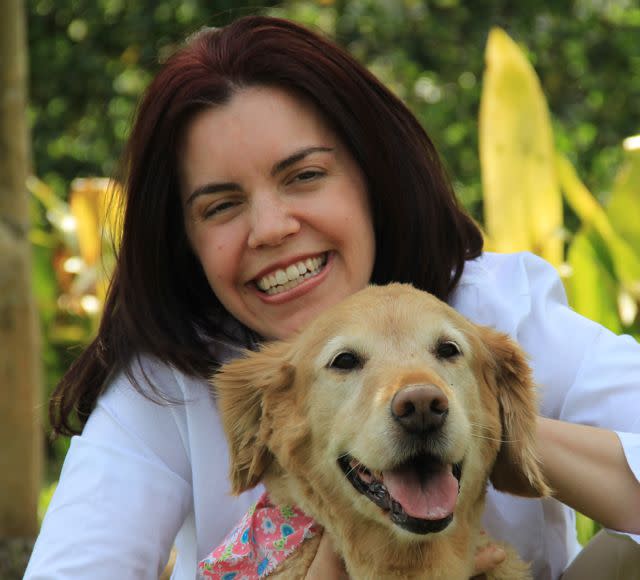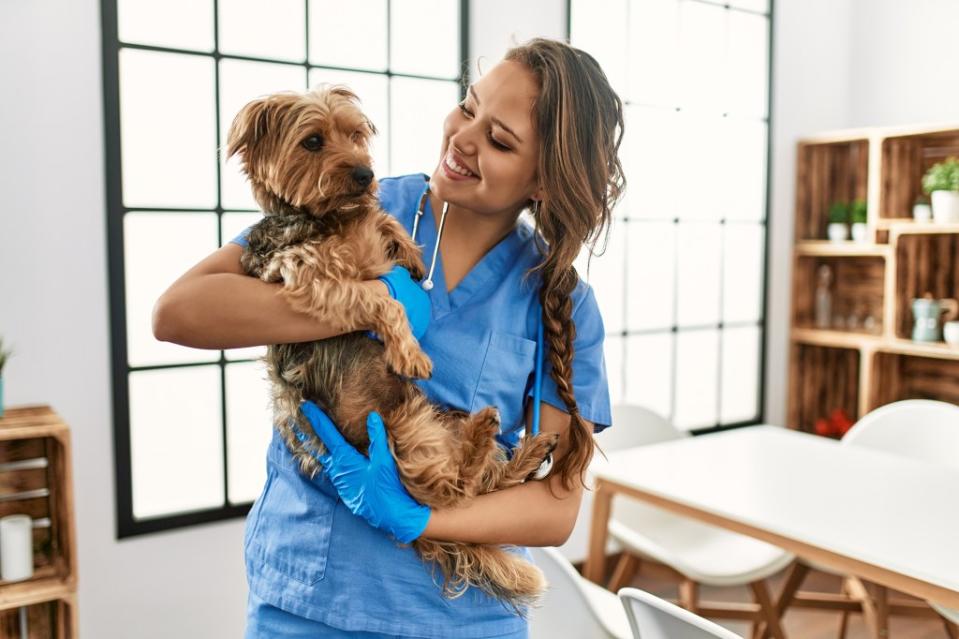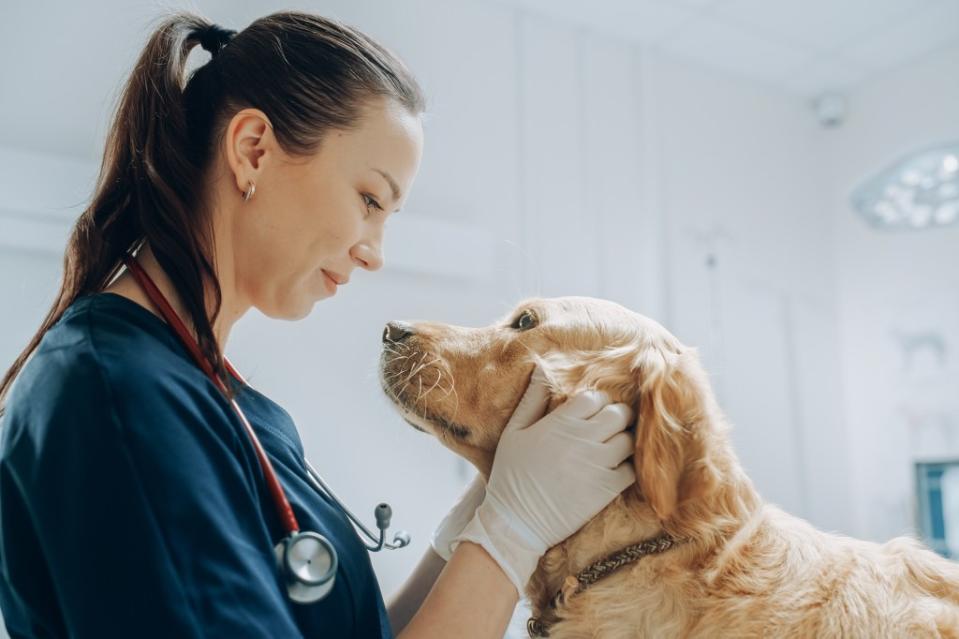I’m a veterinarian — the profession is facing a mental health crisis

- Oops!Something went wrong.Please try again later.
Being a veterinarian is a ruff job.
In honor of World Veterinary Day on April 27, one veterinarian is speaking out about the mental health crisis facing her profession.
“Female veterinarians are three and a half times more likely to take their own life by suicide than the general public,” Dr. Julie Buzby, a veterinarian from Beaufort, South Carolina, told The Post.

“Veterinarians are two times more likely to die by suicide than [any other] medical profession and female veterinarians at a higher rate than male veterinarians,” the veterinarian of 27 years explained.
Around 70% of the industry is made up of women, according to the US Bureau of Labor Statistics.
Buzby is hoping to raise awareness among the public, especially pet owners, about the difficulties veterinarians face.
High-pressure job
Veterinarians rarely get to paws.
“Almost the entire profession is made up of people who are very high achieving, type-A driven personalities who will pour 110% of themselves and their heart and soul, into their work,” Buzby, who also is the founder of ToeGrips for dogs, explained.
She said that veterinarians tend to feel like they are overcommitting and not creating healthy work-life boundaries. This leaves people “feeling like a failure at work because you’re always there and then there’s a pressure from home, feeling like a failure at home, specifically mom guilt,” said Buzby, who is herself a mother.

Student debt
Veterinarians first go to college followed by veterinary school which can take a bite out of finances.
“I’ve seen it reported that the average veterinarian graduates with roughly $150,000 of debt to school loans,” Buzby said. Some veterinarians enter the profession with “upwards of $400,000 in student loans, according to the American Veterinary Association.
A recent survey from US News World Report found that veterinarians make a median salary of $103,260 but some make as little as $82,000 a year.
Buzby said that some veterinarians feel as though they took out loans from predatory lenders and didn’t realize “what impact this was going to have for the rest of their lives.”
“I think every veterinary school should have mandatory financial counseling,” she said.
Debt has a direct impact on mental health. In the US, 45% of adults with debt said they “always” or “often” feel stressed because of it, according to a survey from Forbes Adviser.
Social stress
Some veterinarians prefer animals to people. She said that working with pets is “the joy of the job” but that working with pets’ human owners is also a big part of it.
“It’s a profession that is just as much about people as it is animals, but it’s a profession that attracts introverts,” Buzby said.
“We end up having to do a lot of client communication, a lot of teaching, going over financial stuff … expected outcomes,” she added.
Their work often involves grief counseling and conversations about dying pets are tough on pet owners and veterinarians alike and can be especially hard on introverts.

Mourning pets
She said veterinarians grieve the loss of pets alongside their owners but have to “be professional.”
She explained that during euthanasia appointments she can’t “break down and sob with the family, I can’t have blurry eyes because I have to hit the vein.”
While many assume euthanasia is the toughest part of their job, it’s a privilege to give animals a peaceful sendoff with their families, she explained. However, it doesn’t make the loss easier.
“I’m tearing up now just talking about that because for many of us who’s been in the profession long enough, we saw those pets as puppies and kittens and then we’re there for their euthanasia visit … they are family members for us too,” she said.
Tough clients — made worse by social media
Veterinary bills can be expensive but that’s not the vet’s fault, and several clients don’t know that.
“We have clients that are belligerent about their vet bills,” she said.
Some clients also accuse vets of malpractice, which is “very rare” in reality.
She said that mourning pet owners are just “lashing out” but this can be very hard on vets.
Some go so far as to post about the veterinarians on social media. She said because of patient confidentiality, the veterinarian can’t tell their side of the story. The American Veterinary Medical Association has a cyber-bully department “because it’s a real thing … and hard in mental health,” she said.
She knows veterinarians who have had “their lives threatened,” and even one person who left the profession because of social media.
Seeking support
She said organizations like Not One More Vet were created to prevent veterinarian suicide.
She said pet owners can also make a big difference.
“I would just say be aware that this is a serious problem in veterinary medicine,” she said.
“If you witnessed a situation where a veterinarian is under attack … stand up for your vet.”
If you are struggling with suicidal thoughts or are experiencing a mental health crisis and live in New York City, you can call 1-888-NYC-WELL for free and confidential crisis counseling. If you live outside the five boroughs, you can dial the 24/7 National Suicide Prevention hotline at 988 or go to SuicidePreventionLifeline.org.

